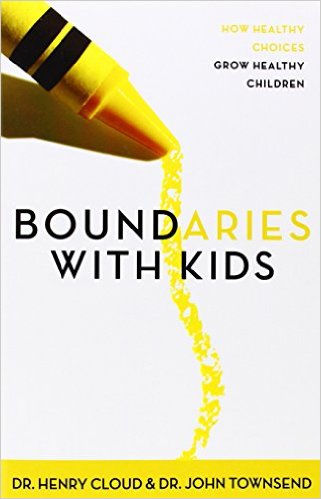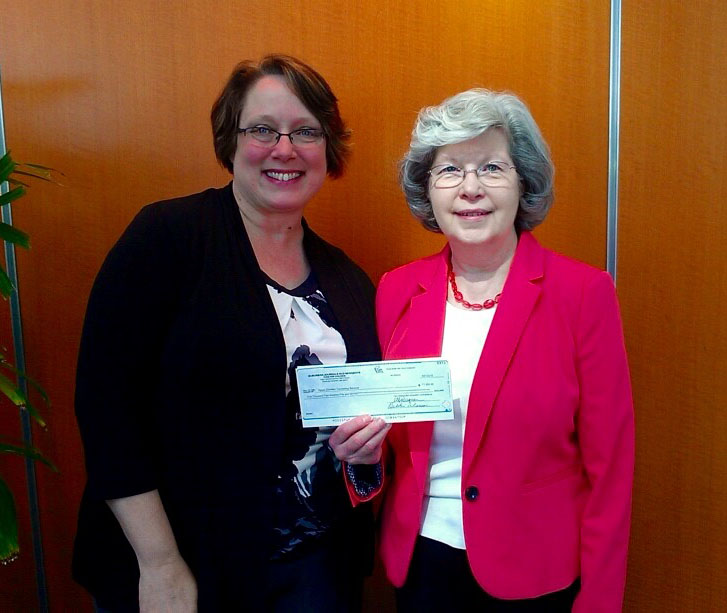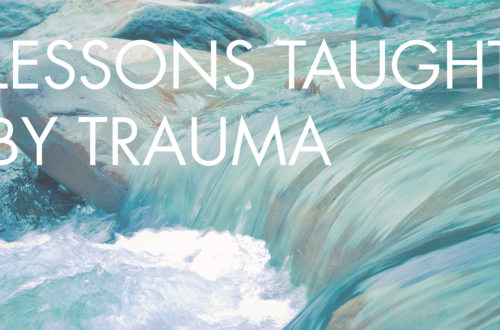
Unconditional Love and Boundaries
 A reflection on Cloud & Townsend’s “Boundaries with Kids”
A reflection on Cloud & Townsend’s “Boundaries with Kids”
In Christian terms, unconditional love is love that doesn’t depend on the attitudes or actions of the beloved. It is a self-sacrificing love, which finds its ultimate expression in Christ’s sacrifice on the cross: “But God shows his love for us in that while we were yet sinners, Christ died for us.” (Romans 5:8, RSV).
Yet we know that God did not love us just to leave us wallowing in our sin; on the contrary, we are told, “Do you not know that God’s love is meant to lead you to repentance?” (Romans 2:4, RSV).
We all desire love from our parents, children, spouses and friends, but in our fallen world we do not always love unconditionally, and we are disappointed and hurt when others do not show the kind of love toward us that we hope for and feel we deserve. Parents frequently ask how a child could turn to drugs, alcohol, or sexual addiction because, after all, they thought they were a good parent who met their child’s needs. They go over and over in their minds, asking “how could this person do this to me after all I did for them?”
They may decide they are done with this child, who has hurt them so terribly by not living up to their expectations. But God tells us in his word “… all have sinned and fall short of the glory of God.” (Romans 3:23, RSV). We can see throughout the Bible, in God’s word, that he is in constant pursuit of us, despite our sin and rebellion against him, and he desires that all men come to the knowledge of the truth (1 Timothy 2:4). As parents, we want our children to succeed and to lead happy, successful, productive lives. Like God, we are grieved when they rebel and make the wrong choices.
Although we may feel like giving up on them and removing them from our lives, it is important to remember that we can love unconditionally without compromising on discipline. There are many verses that stand out, but one in particular is “… as I have loved you, so you must love one another.” (John 13:34, NIV). God does not make excuses for our sin; rather, he says “The Lord disciplines those he loves, he punishes everyone he accepts as a child” (Hebrews 12:6 ERV).
We sometimes forget to consider how our children’s behavior will affect them in the long term. It is helpful to pay special attention to the strengths and weaknesses in their character (Cloud & Townsend p. 13). God has given us boundaries through his word in order to protect us and others in life. When we allow our children to cross boundaries such as talking back, not cleaning their room, hitting their siblings, etc., we are keeping them from attaining self-control, responsibility and freedom (Cloud & Townsend p. 17).
As parents, our role is to be a guardian who limits the dangers of the world, a manager who helps instill self-discipline, and a source of wisdom, teaching our children how to care for themselves both physically and spiritually (Cloud & Townsend pp. 19-21). No parent wants their child to grow up to have zero motivation, think mom and dad should clean up after them, and not know how to plan or organize anything in their life.
In order for our children to learn to be responsible, they need to have consequences when they cross boundary lines. Otherwise, they may come to the conclusion that they are victims in life, who have no choice about how they treat others or allow others to treat them. Parents must train their children to begin doing things without being told; to take ownership of their feelings, attitudes, behaviors, and choices, etc. (Cloud & Townsend p. 26). Children learn about reality through consequences; and have a sense of accomplishment when they have worked at something, grown through their successes and failures, and learned that honesty will cause them less pain in life (Cloud & Townsend pp. 32-35).
Parents may over-discipline because they were over-disciplined, or under-discipline because they felt like they had too much discipline or because they want their child’s approval. They may not realize how the child will react to their parenting (Cloud & Townsend p. 38). If you have told your child numerous times to do something and they ignore you, yet you allow them to continue the behavior, why would they take you seriously? Our children do not come into this world knowing their needs or boundaries, so teaching, modeling, and helping our children see the realities of life will help them with character building and self-confidence (Cloud & Townsend pp. 41-43).
Looking to our children to meet our emotional needs, or being unable to deal with our child’s pain, ignoring bad grades or behavior in hope that it will go away, or letting our children wear us down with arguing and pleas, will only build bad character. As Cloud and Townsend stated, “Consequences make it the child’s problem” (Cloud & Townsend p 60). The child needs the freedom to make choices, responsibility for those choices, and for the consequences. Depending on the choice, the child can choose to suffer the consequences and continue to develop bad character, or can make loving, responsible choices which lead to good character (Cloud & Townsend pp. 61-69).
It is important for children to understand the difference between “it’s hard” and “I can’t.” Just because they do not enjoy something does not mean they cannot do what is asked of them. At times we all need help, and responsible people ask for help; but they also take responsibility for things they can do themselves (Cloud & Townsend pp. 80-81).
It is imperative for children to learn what they have power over and what they do not. Children are always pushing the boundaries in areas God designed for parents to have. (Cloud & Townsend pp. 87-89). We are born with a sinful nature that tells us we can avoid consequences for our bad behavior and failure; we believe we control not only ourselves, but others as well, but reality tells us otherwise. We want to gradually give our child responsibility as they show they are capable, but it’s important to realize our children come into this world wanting their way without consideration of others.
When we teach our children limits, we are helping them have successful relationships with others, and respect for others and God. We want our children to make good choices for the right reasons, not solely out of fear; but they need a healthy fear of consequences, because they have an immature conscience (Cloud & Townsend p. 118).
As adults, we tend to forget that the times we learned the most, and grew more compassionate and understanding, were when we struggled and went through difficulties. Avoiding pain in life is an unrealistic goal; but we can choose to remember that it is when we struggle that we grow the most (Cloud & Townsend p. 139).
When we try to save our children from pain and hardship we are stunting their growth, and they react to situations around them instead of being proactive. Teaching our children to be proactive allows them to learn how to take responsibility for how they deal with their emotions and frustrations. (Cloud & Townsend p. 159). Many adults struggle with entitlement and envy. As humans we all see things we want. It’s helpful to teach our children to ask how they can take responsibility and solve the problem if they are not happy with the situation they are in, so that their needs and wants are met (Cloud & Townsend pp. 164-173).
Allowing your child to succeed and fail, by enabling her/him to seek solutions for their problems, will help them to learn consequences, have some control over their life, avoid those who are not safe, and realize that they can work through problems as they arise (Cloud & Townsend p. 178).
Set clear boundaries with your children.
If you do not know how to communicate clear boundaries, your child will not understand your expectations – or when and how they are crossing a boundary. It’s important to communicate directly to your child that all feelings are ok, but being disrespectful is not ok (Cloud & Townsend pp.194-195).
Speak with your child when you are both calm and if you have a child who does not want to speak, you can tell them you will sit with them in silence until they are ready to speak. State the problem to your child and invite the child to help figure out ways he/she can achieve their goals. State the expectations and what the consequences will be (Cloud & Townsend p. 215). As adults, we tend to forget how difficult it was to be a child who is navigating school, friends, family and those who sometimes bully or otherwise cross our child’s boundaries. Let your child know they can trust you by keeping your word. Telling your child the problem, expectations, and consequences without following through will only cause confusion and chaos in your child’s world and the family.
Finally, as God’s children we rebel daily towards God, but despite our sin God says in John 3:16 “For God so loved the world that he gave his one and only son, that whoever believes in him shall not perish but have eternal life.” His is a love that expects or demands nothing in return, an ever present, unconditional love that accepts each and every one of us with all our faults. A love we yearn for and hope to impart to our children. A love we also learned from our heavenly father who says in 1 John 4:19-21 that we love because he first loved us. Let us try to love our children the way He first loved us.
CITATIONS
Cloud, H., & Townsend, J. (1998). Boundaries With Kids: How Healthy Choices Grow Healthy Children. Grand Rapids, MI: Zondervan.





